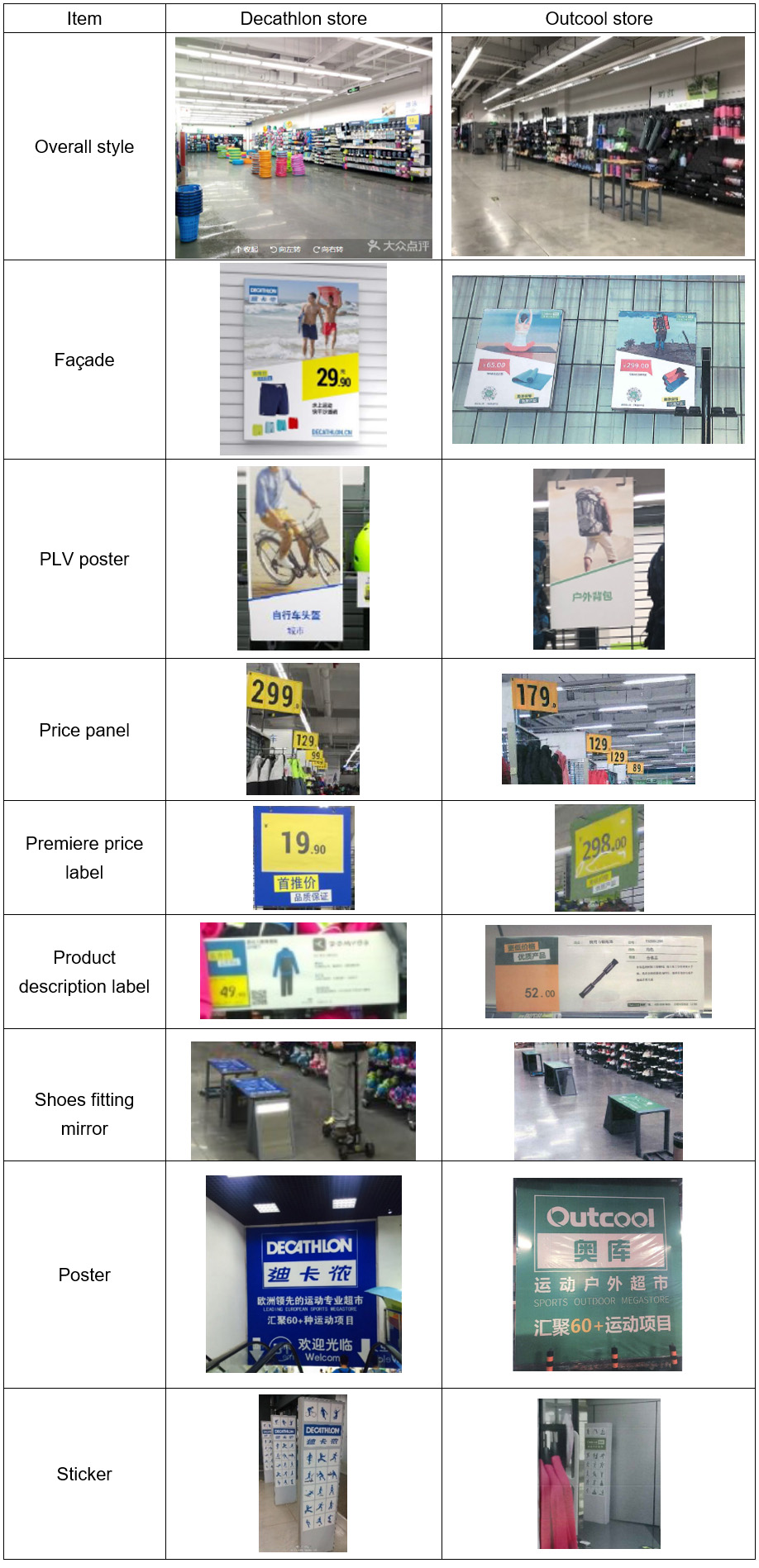Authored by Feng (Janet) Zheng
Decathlon is a French sports ware supplier. Decathlon, which entered the Chinese market as early as 2003, has opened around 200 stores nationwide. Through years of continuous promotion, the trade dress of Decathlon stores has formed a unique style and have become well known among the Chinese consumers.
In September 2020, Decathlon sued Fujian Outcool Sports Goods Co., Ltd. and an individual Zi Wang (hereinafter collectively referred to as the defendants) for unfair competition before the Wuhu Intermediate People’s Court.
The defendants operated franchised stores named Outcool, selling sports goods as well. The defendants used misleading statement such as “Outcool is the Chinese version of Decathlon”, “Outcool is better than Decathlon” in their promotional articles. What is worse is that the trade dress of Outcool stores looks highly similar to that of Decathlon stores:

Decathlon then filed civil litigation on the ground of unfair competition, contending that:
1. Using without permission trade dress similar to that of Decathlon stores, which has gained a certain degree of influence;
2. Using false advertising by publishing online comparative advertising, a marketing strategy in which the defendants’ products or services are presented as superior to Decathlon.
The first instance court Wuhu Intermediate People’s Court dismissed the first claim and supported the second. The court held that Decathlon stores and Outcool stores are obviously different in the store signboard. Besides, for the other store visual elements, they are not that similar as to lead to confusion among relevant public when viewed from an overall perspective. Thus, the court only ordered injunction regarding the false advertising and awarded compensation of RMB 300,000.
Decathlon appealed to the Anhui High People’s Court.
Before filing the appeal, Decathlon invited a panel of renowned experts to analyse the facts and to parse the first instance decision as a neutral third party. The expert panel issued a written opinion, which was submitted to the high court, emphasizing that the differences regarding the signboard of stores has no bearing on the similarity of trade dress in the context of Anti-Unfair Competition Law.
The high court found the argument tenable and ruled that the trade dress of Decathlon stores is unique enough to obtain “certain influence” as required by the Anti-Unfair Competition Law and could serve as a source identifier. Besides, the similarity in the trade dress of Outcool stores and that of Decathlon stores makes the relevant public less likely to notice their difference. As market players in the same industry, Outcool’s similar trade dress will make relevant public misconstrue that there are certain financial ties between Outcool and Decathlon. Finally, the high court found that unfair competition could be established for Outcool’s using of similar trade dress, and awarded compensation of RMB 2 million, almost sevenfold that awarded by the lower court.
Outcool filed retrial petition before Anhui High People’s Court, which was dismissed.
The court of appeal affirmed that the Anti-Unfair Competition Law does not prohibit business operators from drawing experience from each other, however, where the borrowing goes beyond the reasonable boundary and escalates into a full-scale imitation of other’s distinctive trade dress and packaging that serves as a source identifier, such act shall be deemed as free-riding and malicious, and unfair competition could be established.
This case is a live example on protecting store images by using the Anti-unfair Competition Law in China. The case helps Decathlon win the Unifab Award in the “Enterprise” category in 2023.